Former Iranian FM Claims Hamas’s Popularity Increased Since October 7
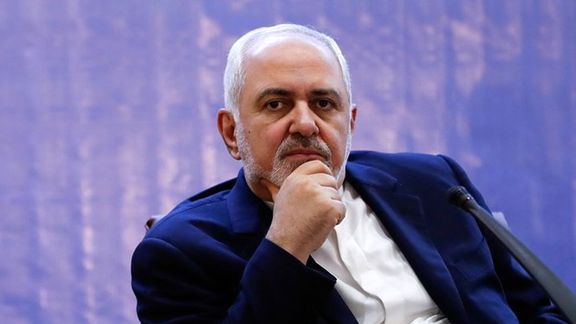
Iran’s former foreign minister, Mohammad Javad Zarif, claims the popularity of Iran's Palestinian proxy, Hamas, has “greatly increased” in the wake of the atrocities of October 7.

Iran’s former foreign minister, Mohammad Javad Zarif, claims the popularity of Iran's Palestinian proxy, Hamas, has “greatly increased” in the wake of the atrocities of October 7.
“Despite all the damage inflicted on the Palestinians, Israel has failed to revive the myth of its invincibility,” Iran’s former foreign minister said of the attacks which saw 1,200 mostly civilians murdered in a single day by the Gazan militia and over 250 taken hostage.
Iran continues to deny its hand in the invasion which saw thousands of Hamas militia infiltrate Israel by air, land and sea, however, Tehran continues its very public, high level engagement with Palestinian militant groups, such as Hamas and the Islamic Jihad, which it has for years funded, armed and trained.
Last month, Ali-Akbar Salehi, Iran’s former foreign minister and the former head of the country’s nuclear agency, stressed that Tehran will “never” recognize Israel “even if a Palestinian state is established.”
“As long as the [Israeli] entity exists and is active in our region, the crisis will remain between Iran and the regime that is occupying Jerusalem, even if a Palestinian state is established. I am referring to the proposed two-state solution,” Salehi pointed out.
In 2015, Supreme Leader Ali Khamenei said Israel must be destroyed in 25 years and the government even set up a countdown clock in Tehran and other Iranian cities.
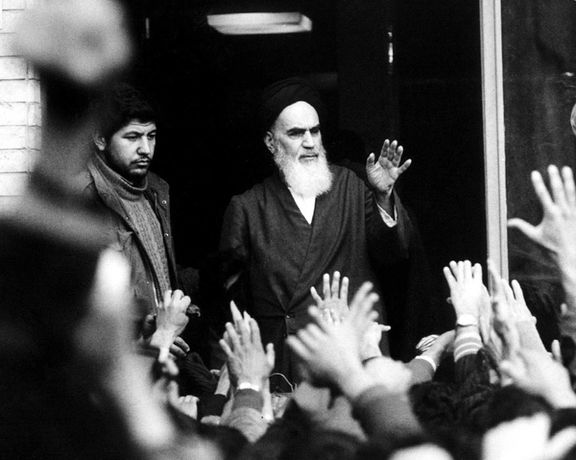
As the Islamic Regime of Iran celebrates its 45th anniversary, it's crucial to reflect on the profound significance of human rights, accountability, and justice.
Delving into the dark chapter of Iran's history, we confront the grim realities of the 1981 massacre, witnessing the extent of the atrocities and their enduring impact on the nation's legal foundations. This sad reflection serves as a stark reminder of the imperative to uphold human rights and ensure accountability in the wake of mass atrocities.
In the wake of the 1979 revolution that toppled the Shah of Iran and established the Islamic Republic, the world watched with anticipation as the country embarked on a new path. Iran was at a crossroads, transitioning from a monarchy to an Islamic republic led by Shia clerics. However, what followed was a period marked by political turmoil, violent oppression, and a ruthless crackdown on dissent that remains one of the darkest chapters in Iran's history. The executions of the former regime’s government officials and army leaders right after the revolution, followed by the 1981 massacre in Iran initiated by a Fatwa from Ayatollah Khomeini, the Supreme Leader at the time, stand as a haunting reminder of the brutality that can accompany political transitions.
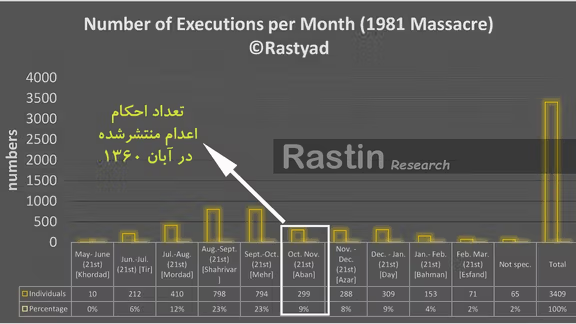
The 1981 Massacre: A Forgotten Tragedy
Shortly after the 1979 revolution, Shia clerics seized control of most political institutions in Iran, rapidly consolidating their power. This newfound regime embarked on a mission to establish a religious dictatorship in the Middle East's second-largest country. Their approach was characterized by totalitarian tendencies and an iron grip on the nation's political landscape.
One of the most horrifying aspects of this regime's consolidation of power was the 1981 massacre, a mass atrocity that received insufficient attention in the years that followed. This massacre, which occurred between June 1981 and March 1982, targeted a wide range of political opponents, including communists, socialists, social democrats, moderate Islamists, liberals, monarchists, and followers of the Bahá'í Faith. It stands as one of the most extensive atrocities committed by the Islamic Republic of Iran after the 1979 revolution.
The mass killings of political prisoners in Iran in 1981 were not spontaneous acts of violence. They were deliberate, organized, and well-planned crimes against humanity. These atrocities involved various factors, including personal identity issues and conflicts between different religious, political, and social groups. The Islamic Government of Iran did not hide this massacre; they proudly announced the names of the executed in newspapers, publicly boasted about it, and defended themselves vehemently when faced with international condemnation.
To gain a comprehensive understanding of the 1981 massacre, it is essential to delve into the research conducted by the Rastyad Collective and the revelations it has brought forth. Their site documents over 3500 executions across 85 cities, shedding light on the tragic fate of many. Their meticulous examination of the events surrounding the massacre affirms the widely held belief that it transpired within a legal vacuum, with the state resorting to extra-legal means of violence to assert control. Furthermore, their findings shed light on the significant impact of this massacre in shaping the legal framework of Iran's theocratic regime. By perpetrating such egregious acts, the regime instilled fear and apathy among the populace, solidifying its grip on power and stifling dissent.
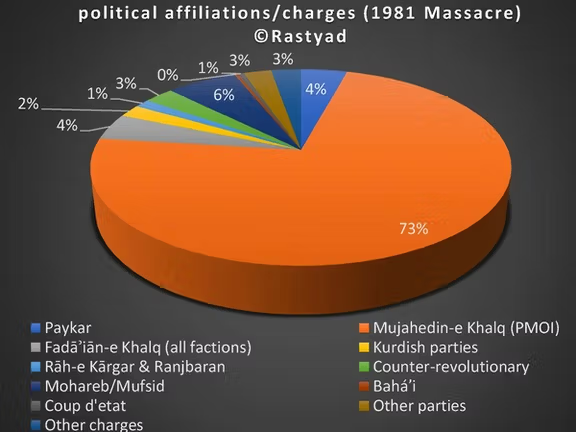
On a political level, the massacre unfolded within a crisis triggered by post-revolutionary circumstances. The clerical rule seized power by suspending the pre-revolutionary legal order, allowing them to monopolize political power. On a legal level, the execution of political dissidents occurred within this legal vacuum. Establishing Islamic Revolutionary Courts and ratifying the first Islamic Penal Code in 1982 were crucial steps that solidified the regime's legal foundations.
The Rastyad Collective's research firmly establishes that the 1981 massacre was carried out in a legal vacuum. The extra-legal use of state violence was employed to eliminate political dissidents and critics. This practice involved ill-grounded and ruthless legal proceedings and trials, leading to the sentencing of thousands to death. These actions epitomized a political system willing to resort to brutality to silence opposition and maintain power. The Rastyad Collective's research underscores the role of the 1981 massacre in the development and ratification of Iran's legal framework and the consolidation of a totalitarian theocratic system. It provides a harrowing account of state violence and its enduring impact on the nation's political and legal landscape.
What distinguished the 1981 massacre from other atrocities of the Islamic Regime of Iran is its unique legal status. The trials of the accused lacked the standards of a fair trial, and the judicial authority responsible for issuing death sentences, as well as the crimes based on which these sentences were issued, did not exist in Iran's judicial laws at the time. Revolutionary courts sentenced thousands of people to death without a defined status or jurisdiction in Iran's judicial system. These courts operated illegally for nearly two decades until they were incorporated into the official judicial system in 1994.
Many individuals executed in 1981 were accused of "Moharebeh" (waging war against God) or "Mofsed-e-filarz" (corruption on earth). However, these crimes were not defined in Iran's judicial laws until later, and their inclusion was gradually added to the Islamic Penal Code in 1982. Due to the lack of legal basis for the charges and the absence of fair trial procedures, the executions carried out in 1981 are considered illegal and examples of "state murder."
Another particularly distressing aspect of the 1981 massacre was the execution of children under the age of 18. This occurred despite international commitments not to execute children under the age of 18, which were still valid from the previous regime. In documenting the tragic loss of innocent lives, particularly children, during a dark period in Iran's history, Rastyad reports that only in Behesht-e-Zahra cemetery plot 41, 104 graves belong to underage children.
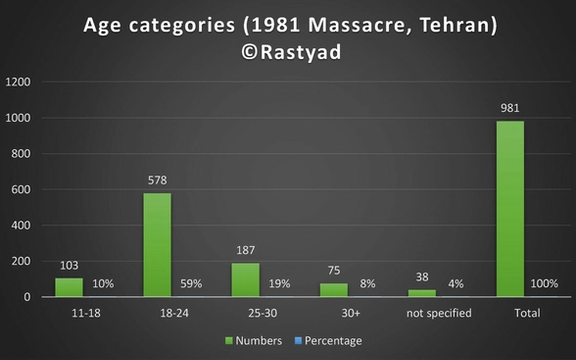
Last year, Javid Rahman, the UN Special Rapporteur on Iran, spoke at an event organized by the University of Amsterdam and the Netherlands Institute for War, Holocaust, and Genocide Studies. He emphasized the pivotal role of research on the 1981 Massacre in unraveling the complex web of connections between the past atrocities of the Islamic Regime of Iran and present-day human rights abuses. The findings offer invaluable insights into the mechanisms of state-sponsored violence and the enduring trauma inflicted upon countless individuals and families.
Furthermore, Rahman explored the far-reaching implications of the 1981 massacre on Iran's legal and judicial systems. He underscored how the establishment of revolutionary courts and the normalization of child executions represented grave violations of international human rights law, perpetuating a culture of impunity and injustice.
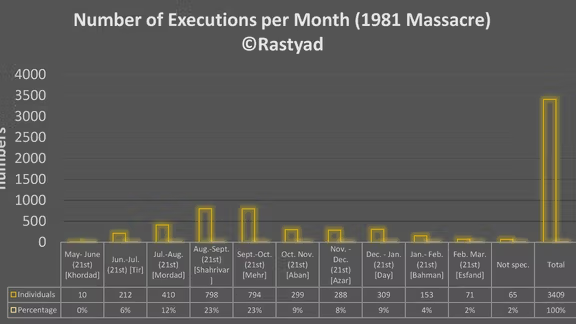
The legacy of the 1981 massacre continues to haunt Iran, with ongoing human rights abuses perpetrated by the Islamic Regime. The regime's current practices, including arbitrary arrests, enforced disappearances, and extrajudicial killings, reflect a pattern of impunity and disregard for basic human rights. Despite international condemnation, perpetrators of these atrocities continue to operate with impunity, further underscoring the urgent need for accountability and justice.
In conclusion, the legacy of the 1981 massacre continues to haunt Iran, with ongoing human rights abuses perpetrated by the Islamic Regime. The regime's current practices, including arbitrary arrests, enforced disappearances, and extrajudicial killings, reflect a pattern of impunity and disregard for basic human rights. Despite international condemnation, perpetrators of these atrocities continue to operate with impunity, further underscoring the urgent need for accountability and justice. Building upon this, the international community must heed the lessons of history and confront the legacy of the 1981 massacre with courage and determination. World leaders must prioritize human rights and justice in their dealings with Iran, ensuring that the victims of past atrocities are not forgotten and that future generations are spared from similar suffering. By amplifying the voices of the victims and advocating for accountability, we can pave the way for a brighter, more equitable future for Iran and its people.
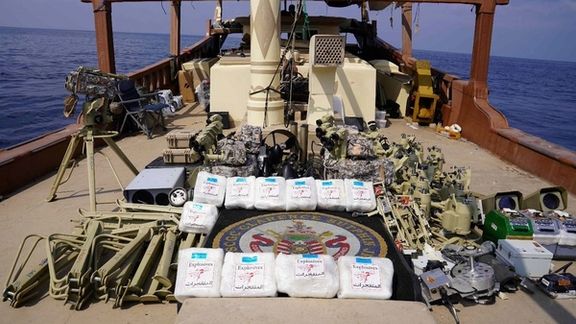
The United States Central Command (CENTCOM) intercepted a weapons consignment of "advanced conventional weapons and other lethal aid" en-route to Iran's Houthi militia in Yemen.
The intercepted shipment included components for ballistic missiles, drones, explosives and assorted military gear.
The US Coast Guard Sentinel-class fast-response cutter USCGC Clarence Sutphin Jr, operating under CENTCOM Naval Forces, intercepted the vessel in the Arabian Sea on January 28, according to the statement.
"The boarding team discovered over 200 packages that contained medium-range ballistic missile components, explosives, unmanned underwater/surface vehicle (UUV/USV) components, military-grade communication and network equipment, anti-tank guided missile launcher assemblies, and other military components," detailed the CENTCOM statement.
General Michael Erik Kurilla, commander of CENTCOM, said, "This is yet another example of Iran’s malign activity in the region".
He added, "Their continued supply of advanced conventional weapons to the Houthis is in direct violation of international law and continues to undermine the safety of international shipping and the free flow of commerce."
The statement reiterated CENTCOM's commitment to collaborating with allies and partners to counter the proliferation of Iranian lethal aid in the region through lawful means, including US and UN sanctions and interdictions.
The interception comes on the heels of another incident on January 16, where US Navy forces halted a small vessel ferrying advanced lethal aid from Iran to reinforce Houthi forces in Yemen. Such interceptions highlight ongoing tensions in the region, with recent Houthi attacks on commercial vessels disrupting global trade routes, allegedly in response to Israel's actions in Gaza and in line with Iran's directives.
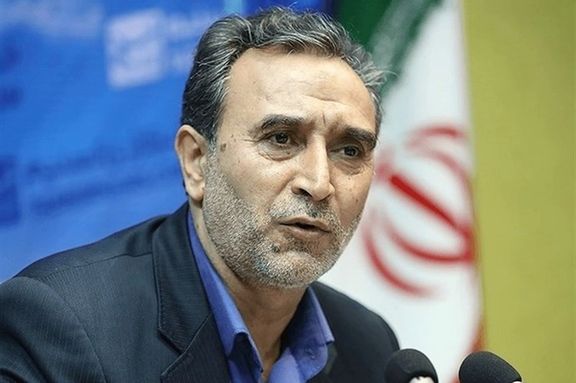
The legal advisor to Iran's president, Mohammad Dehghan, issued a warning on Thursday, stating that Iran would reciprocate if its ships were seized by the US for sanctions evasion.
On February 2, the US Department of Justice announced charges related to terrorism and sanctions evasion, along with seizures linked to a billion-dollar oil trafficking network allegedly financing Iran's elite Islamic Revolutionary Guard Corps (IRGC) and other militant groups.
The department highlighted recent attacks attributed to Iran-backed militants, such as the October 7 attack by the Palestinian group Hamas on Israel and an attack in Jordan over the weekend that resulted in the death of three US soldiers. These incidents have drawn increased attention to Iran's illicit oil trade, according to the DOJ.
In addition to announcing charges, the DOJ reported seizing more than 520,000 barrels of Iranian oil aboard the crude tanker Abyss, which were covered by US sanctions.
"If an Iranian ship is seized, we will reciprocate and the legal way is not closed in this regard," legal adviser Dehghan said, adding that he was not able to confirm whether US authorities had seized an Iranian vessel.
In the face of international sanctions, Iran has developed intricate strategies to navigate its oil trade and circumvent restrictions. Despite facing severe limitations on conventional banking channels and trading platforms, Iran has resorted to various methods to sustain its oil exports.
One approach which has proven invaluable involves barter arrangements with allies such as China, where Iran trades its oil directly for goods and services, bypassing the need for traditional currency transactions. Additionally, Iran has leveraged alternative payment mechanisms and intermediary entities to skirt sanctions and facilitate oil transactions.
By utilizing unconventional routes and channels, including cryptocurrency and front companies such as those in the UAE and Turkey, Iran has obscured the origins and destinations of its oil shipments, making it challenging for international authorities to monitor and enforce sanctions effectively.
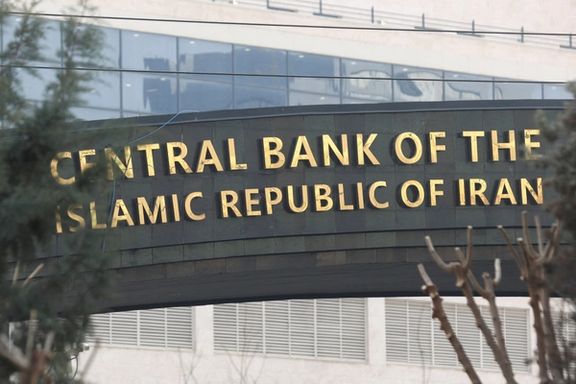
The United States has announced a new package of sanctions over a technology procurement network linked to the Central Bank of Iran, which has been finding ways to evade the measures.
The US Treasury said on Wednesday it had imposed sanctions on a subsidiary of the Central Bank of Iran (CBI), along with two entities based in the United Arab Emirates, one in Turkey and on three individuals for smuggling sophisticated US technology from over two dozen American companies to end-users in Iran, including the CBI.
In a statement, the Treasury noted the CBI is itself already under sanction for providing financial support to Iran's Revolutionary Guards’ Quds Force (IRGC-QF), an elite arm which carries out overseas operations, and on Hezbollah, a powerful Iranian-backed armed and political force in Lebanon.
“The Central Bank of Iran has played a critical role in providing financial support to the IRGC-QF and Hezbollah, two key actors intent on further destabilizing the Middle East,” said Under Secretary of the Treasury for Terrorism and Financial Intelligence Brian E. Nelson.
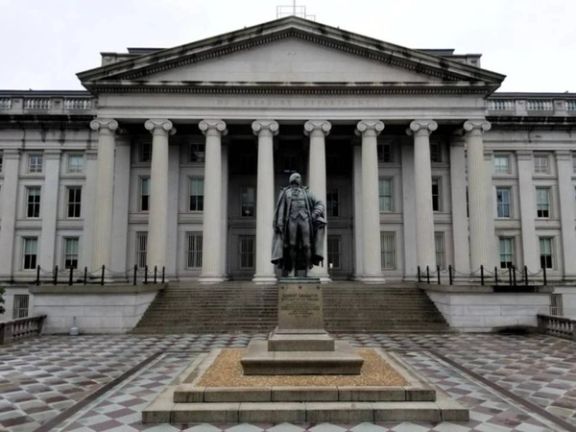
The Treasury named the entities as Iran-based Informatics Services Corporation (ISC), a subsidiary of CBI; UAE-based Advance Banking Solution Trading DMCC (ABS), an ISC front company; UAE-based Freedom Star General Trading Co (L.L.C.); and Turkey-based Ted Teknoloji Gelistirme Hizmetleri Sanayi Ticaret Anonim Sirketi (Ted).
It identified the three individuals as ISC Chief Executive Seyed Abotaleb Najafi; Freedom Star President Mohammad Reza Khademi; and ISC employee Pouria Mirdamadi, a dual French and Iranian national involved in Ted's operations.
The sanctions represent Washington's latest efforts to punish Tehran, whose proxies in Iraq, Lebanon, Syria, Yemen and the Gaza Strip have attacked US and Israeli targets since the Gaza war broke out on October 7. According to the Treasury, all property of those sanctioned that is in the United States or falls under the control of US persons is blocked. In general US regulations bar US persons from transactions involving property of those sanctioned.
The punitive measures enacted by the US appear toothless, as the Islamic Republic often asserts, primarily due to the absence of assets held by Iranian individuals and companies within US jurisdiction, making confiscation impractical.
Moreover, recent disclosures by a hacktivist group further illustrate Iran's extensive arsenal of strategies aimed at shielding designated entities and individuals, facilitating their trade activities, and obscuring their identities and connections from international regulatory scrutiny.
Additionally, the regime has honed its ability to navigate sanctions over years of grappling with their adverse effects, demonstrating a resilience born of experience in coping with pressure and mitigating associated damages.
In addition to exploiting loopholes and establishing procurement networks to acquire sanctioned technology and equipment, Iran has witnessed a notable surge in oil exports in recent years. From a low point of less than 500,000 barrels per day following the US re-imposition of sanctions in 2019, exports have soared to over 1,500,000 barrels per day. Regime officials attribute this rise to measures aimed at circumventing punitive measures, resulting in an influx of revenue to the regime's proxies across the region.
The rise in oil exports has drawn the attention of US lawmakers, who have repeatedly emphasized to the Biden administration the implications of increased financial support for Iran-backed groups. Earlier this month, a bipartisan group of Senators urged President Joe Biden to tighten enforcement of Iran's oil sanctions in light of the country's exports reaching a five-year high.
"In the wake of the October 7 terror attacks and subsequent assaults by Iran-backed proxies on US forces in the Middle East, we urge you to intensify efforts to halt Iran's channeling of lucrative oil exports to fund terrorism," said 18 Senators in a letter to Biden.
This sentiment echoes a similar call made by over 60 representatives from both sides of the aisle in the House, who advocated for "immediate action" to prevent the Iranian regime from obtaining additional financial resources to sustain its support for terrorism.
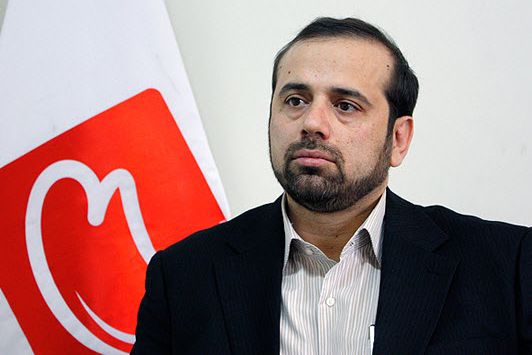
Kioumars Hashemi, the Iranian Minister of Sports and Youth, has appointed a security official as the new CEO of the Sports Facilities Development and Maintenance Company.
Hossein Tala's appointment has sparked criticism due to his involvement in suppressing the 2009 protests as governor of Tehran. The protests erupted following the announcement of Mahmoud Ahmadinejad's victory in the presidential elections, amid widespread allegations of electoral irregularities.
His actions during the protests and his alleged involvement in the suppression of dissent led to sanctions imposed by the European Union in 2011.
Before his tenure as governor, Tala held a position as the deputy political officer at the Tharallah headquarters of the Islamic Revolutionary Guard Corps. The Tharallah headquarters played a pivotal role in quelling protests and uprisings in Tehran.
The 2009 protests, also known as the Green Movement, marked a significant moment in the country's recent history. Sparked by allegations of election fraud following the controversial re-election of President Mahmoud Ahmadinejad, masses of Iranians took to the streets to voice their dissatisfaction with the government.
The protests, which began peacefully, quickly escalated into violent clashes between demonstrators and security forces, resulting in numerous deaths and arrests. The Green Movement represented a broad coalition of Iranians from various socio-economic backgrounds, united in their demand for political reform, transparency, and respect for human rights.
Despite the government's harsh crackdown on dissent, the 2009 protests symbolized a growing desire for change among Iranians disillusioned with the ruling regime. The use of social media platforms like Twitter and Facebook played a crucial role in organizing and spreading information about the protests, despite government attempts to suppress communication channels.